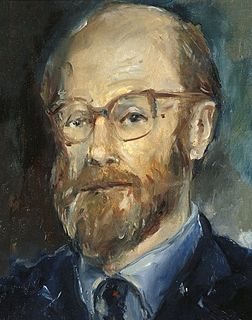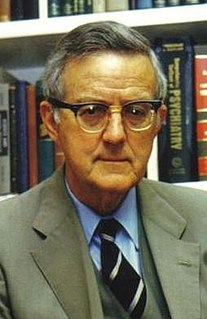A Quote by Stephen Hawking
Science is beautiful when it makes simple explanations of phenomena or connections between different observations.
Quote Topics
Related Quotes
The progress of science has always been the result of a close interplay between our concepts of the universe and our observations on nature. The former can only evolve out of the latter and yet the latter is also conditioned greatly by the former. Thus in our exploration of nature, the interplay between our concepts and our observations may sometimes lead to totally unexpected aspects among already familiar phenomena.
Laplace considers astronomy a science of observation, because we can only observe the movements of the planets; we cannot reach them, indeed, to alter their course and to experiment with them. "On earth," said Laplace, "we make phenomena vary by experiments; in the sky, we carefully define all the phenomena presented to us by celestial motion." Certain physicians call medicine a science of observations, because they wrongly think that experimentation is inapplicable to it.
Westerners think that all that is negative and positive is only caused from outside of themselves. They materialize and externalize their experiences, never understanding the connection between outer and inner phenomena or interdependent phenomena, looking for explanations only from objects through nihilist habit instead of from the subjective experience of their own minds.
In the first stage of insight-building, all that researchers can do is observe phenomena. Second, they classify the phenomena in a way that helps them simplify the apparent complexities of the world so they can ignore the meaningless differences and draw connections between the things that really seem to matter. Third, based on the classification system, they propose a theory. The theory is a statement of what causes what and why, and under what circumstances.
In evolution, as in all areas of science, our knowledge is incomplete. But the entire success of the scientific enterprise has depended on an insistence that these gaps be filled by natural explanations, logically derived from confirmable evidence. Because "intelligent design" theories are based on supernatural explanations, they can have nothing to do with science.
Difficulties arise when reported observations seem to conflict with 'facts' that the majority of scientists accept as established and immutable. Scientists tend to reject conflicting observations.....Nevertheless, the history of science shows that new observations and theories can eventually prevail.




































